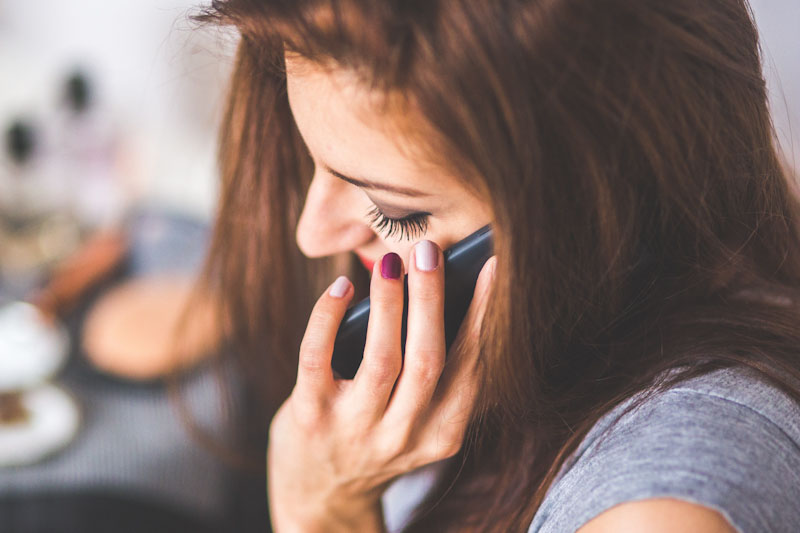Call 988 for Help: National Suicide Prevention Lifeline Gets New Dialing Code
The three-digit code for the Suicide & Crisis Lifeline makes it easier to call, text or chat for quick, compassionate care during a mental health or substance use crisis

For anyone in the U.S. experiencing mental-health, emotional or substance use–related distress, the National Suicide Prevention Lifeline has been a vital 24/7 resource, quickly connecting callers with free and confidential support from trained counselors at more than 200 crisis centers across the country.
In 2020, Congress approved an initiative to make it easier for those in need to access the Lifeline, via a new three-digit dialing code. Now, starting July 16, anyone can call, text or chat 988 to connect with the Suicide & Crisis Lifeline, which will also continue to operate the existing 10-digit phone number, 1-800-273-TALK (8255). (All Sober has compiled a list of more hotlines for anyone needing urgent help with a substance use or mental health issue.)
“The 988 dialing code is just a first step toward strengthening and transforming crisis care in this country. It serves as a universal entry point so that no matter where you live, you can reach a trained crisis counselor who can help,” said the Substance Abuse and Mental Health Services Administration (SAMHSA) in an announcement of the new dialing code. SAMHSA described the Lifeline and the new code as “a direct connection to compassionate, accessible care and support for anyone experiencing mental health–related distress — whether that is thoughts of suicide, mental health or substance use crisis, or any other kind of emotional distress.” Family and friends of those who may be struggling are also encouraged to use the Lifeline.
SAMHSA, a division of the federal Department of Health and Human Services (HHS), has funded the Lifeline since its inception in 2005; it is administered by the nonprofit Vibrant Emotional Health through a network of locally operated and funded crisis centers. With funds from the American Rescue Plan, SAMHSA allocated nearly $105 million to implement the 988 code, and to shore up resources and workforces at crisis centers in 54 U.S. states and territories. Calls to 988 will be fielded in multiple languages, with the text and chat features available in English.
“Providing states and territories with the support to prevent suicide by assisting people in crisis is critical to our nation’s health,” said HHS Secretary Xavier Becerra in a press release announcing the new details.
Mental health and substance use issues are an urgent priority in the U.S. In 2020, one death by suicide occurred about every 11 minutes in the country, making it a leading cause of death for those aged 10 to 34. From April 2020 to 2021, more than 100,000 Americans died from drug overdoses.
According to SAMHSA, however, numerous studies have shown that most callers to the Lifeline are more likely to feel less depressed and suicidal, and more hopeful, after speaking to a counselor.
SAMHSA’s vision for 988, which is being launched in partnership with the Federal Communications Commission and the Department of Veterans Affairs, includes expanding the infrastructure and capacity of crisis centers. SAMHSA expressed hope that eventually, its crisis care system will encompass a more robust response that can link callers to community-based care providers with mobile crisis teams and stabilization centers, if needed, as well as resources to prevent future crisis situations.
“We envision a day when everyone across our country has someone to call, someone to respond and a safe place to go for crisis care,” said SAMHSA.
** Find more information about the 988 Suicide & Crisis Lifeline in this SAMHSA fact sheet, and get more details about the Lifeline and how it works at suicidepreventionlifeline.org. For more hotlines that can help with an urgent substance use or mental health issue, check All Sober’s list.
More Help & Information
Sobriety vs. Recovery: What's the Difference?
Are the concepts themselves up for debate? Do they require certain treatments, or abstinence from everything? It's complicated! And new ways of thinking are changing the conversation.
Now Elite NFL Players, They First Tackled Addiction | News Roundup
All Sober compiles the best of the latest headlines. Here's your addiction and recovery news for the week of Feb. 19, 2024!
Help Them Help You: Explaining Your Mental Health to Your Family
Your mental health can affect — and be affected by — your loved ones. Here's how to discuss it with them so everyone can heal.
Dry January (and Beyond): The Possibilities Are Endless
There's never been a better time to go sober. Whether you're trying it out this month or already living the life, join us for some tips, ideas, inspiration — and maybe even new friends.
Sober Holiday Tips: Meeting 'Share-a-Thons'
Need to get out of the house for a bit and see some friendly sober faces? Recovery support group meeting marathons run 24/7 from Christmas Eve through New Year's Day.
What Happens After an Intervention?
Your loved one agreed to get treatment for addiction during their intervention — or not. Here's what you need to know about what comes next.
We're in This Together: Building a Healthy Sober Support Network
You are the captain of your recovery, but you don't have to do it alone. A sober support network will lift you up in tough times and celebrate your triumphs.
Real-Life Recovery Tips: Phone a Friend
When you're traveling, you can take your sober support network with you — right in your pocket. Rocker Kasim Sulton shares his top recovery tip in this video.











